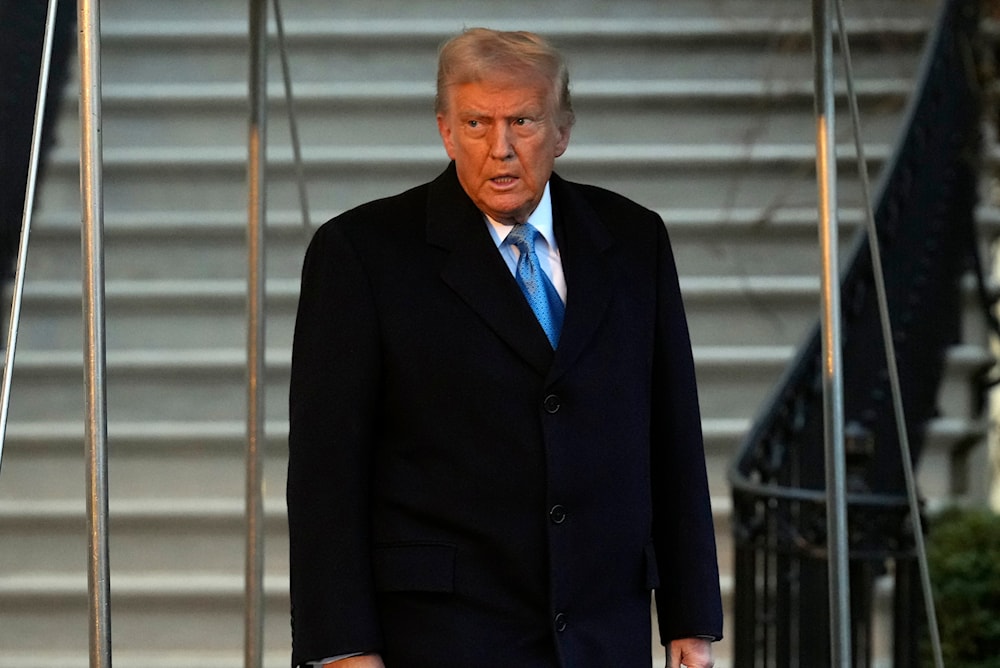'Dumbest' trade war fallout begins under Trump: WSJ
Canada and Mexico pledge to retaliate against Trump’s tariffs, escalating economic uncertainty.
-

President Donald Trump departs the White House, on January 31, 2025, in Washington, en route to Florida. (AP)
A report by the Wall Street Journal (WSJ) on Monday stated that despite concerns over economic repercussions, US President Donald Trump’s latest tariff measures are unlikely to plunge the US economy into a recession.
"WILL THERE BE SOME PAIN? YES, MAYBE (AND MAYBE NOT!). BUT WE WILL MAKE AMERICA GREAT AGAIN, AND IT WILL ALL BE WORTH THE PRICE THAT MUST BE PAID," Trump posted on Truth Social on Sunday morning.
The nation’s economic growth remains robust enough to absorb the impact, as it did during Trump's first term when similar but more moderate tariffs were implemented, according to WSJ, adding that the same stability cannot be assumed for neighboring countries Mexico and Canada, both of which are experiencing slower growth and rely heavily on US trade to sustain significant portions of their GDP.
Inflation and price pressures
The report suggested that while the tariffs may not trigger widespread inflation, they are expected to drive up the costs of the specific goods they target.
It added that inflation in the US is more closely linked to the Federal Reserve’s monetary policies, but higher prices on tariffed imports will still pose a financial strain on consumers and businesses.
That said, the implementation of broad tariffs introduces an additional layer of policy unpredictability, which could increase investor confidence and disrupt business operations.
Jay Timmons, CEO of the National Association of Manufacturers, put out a statement explaining that "a 25% tariff on Canada and Mexico threatens to upend the very supply chains that have made US manufacturing more competitive globally."
"The ripple effects will be severe, particularly for small and medium-sized manufacturers that lack the flexibility and capital to rapidly find alternative suppliers or absorb skyrocketing energy costs."
The report suggests that markets had largely anticipated that Trump would either retreat from his most aggressive tariff proposals or restrict them to China, adding that the sweeping application of these tariffs, particularly their impact on Mexico and Canada, has challenged that assumption.
Global trade repercussions
WSJ reports that Trump’s belief in tariffs as not just a diplomatic bargaining tool, but as an inherent economic advantage, has sent shockwaves through global markets.
Countries and industries that once considered themselves immune to such measures are now reevaluating their trade dependencies on the US. The long-term effects of this shift remain uncertain, according to the report, but both allies and competitors are expected to adjust their economic strategies in response.
That said, the broader implications of Trump’s trade policies raise questions about their overall benefit to the US economy.
The report suggests that the indiscriminate application of tariffs has led some analysts to label this strategy as the "dumbest trade war," a characterization that according to WSJ may not even fully capture the complexities and risks involved.

 3 Min Read
3 Min Read








